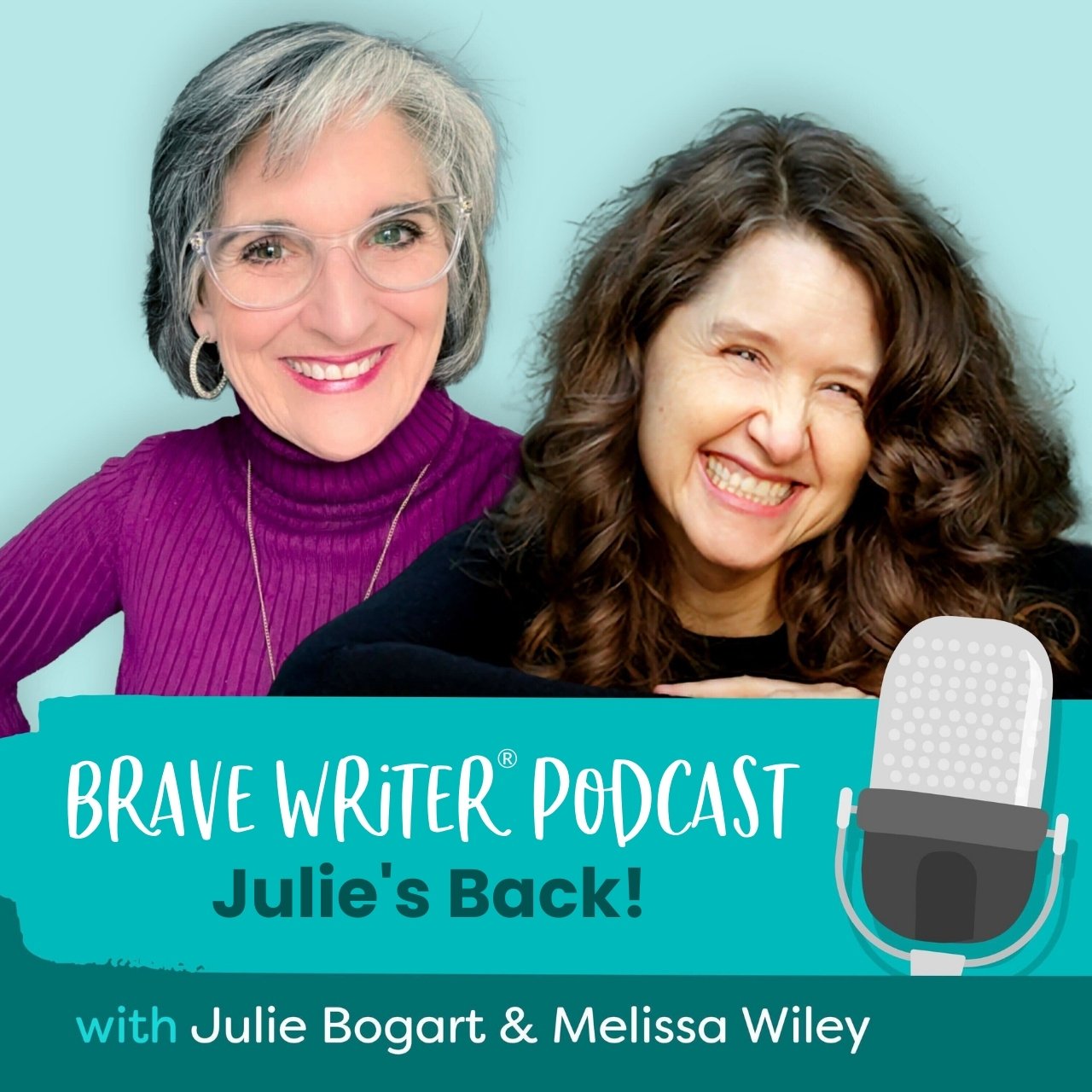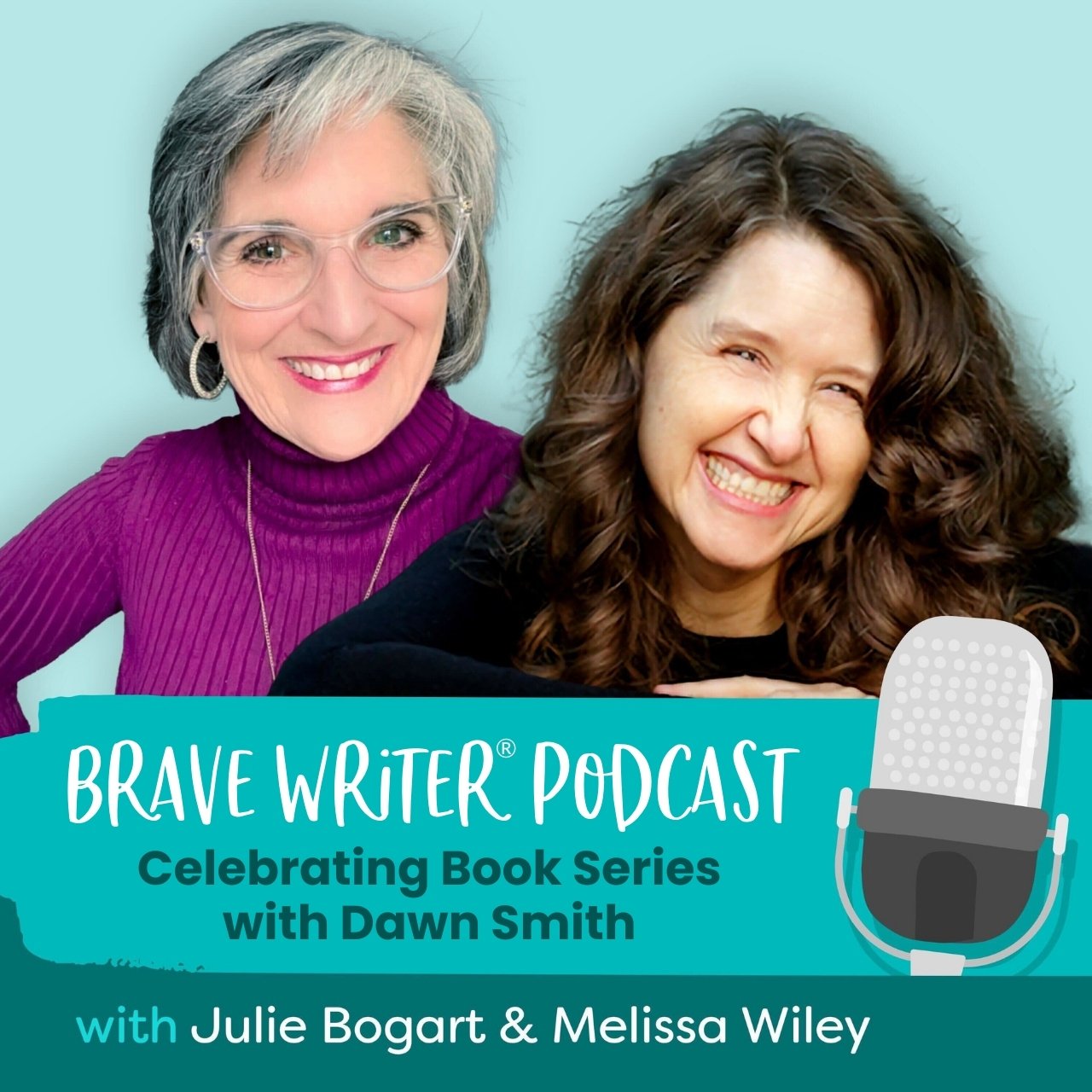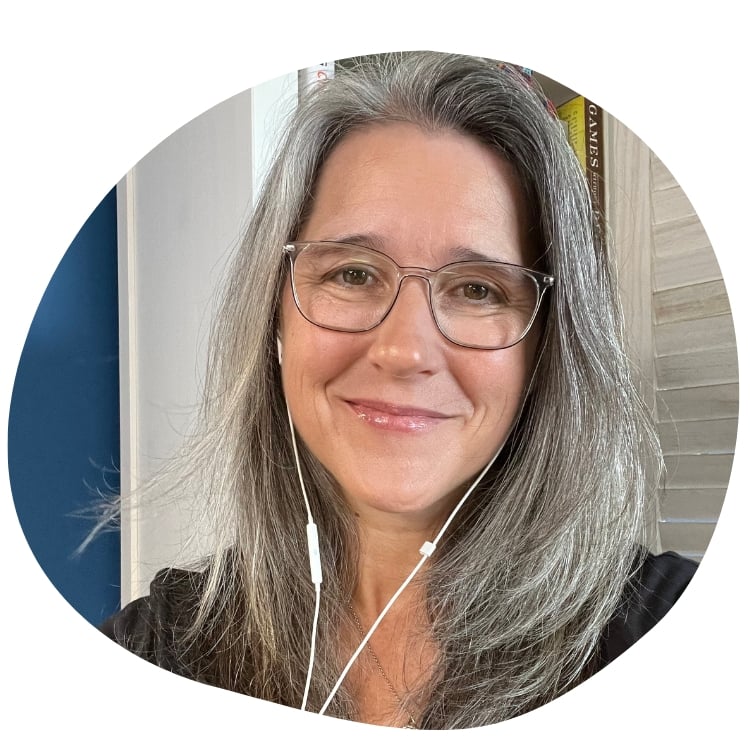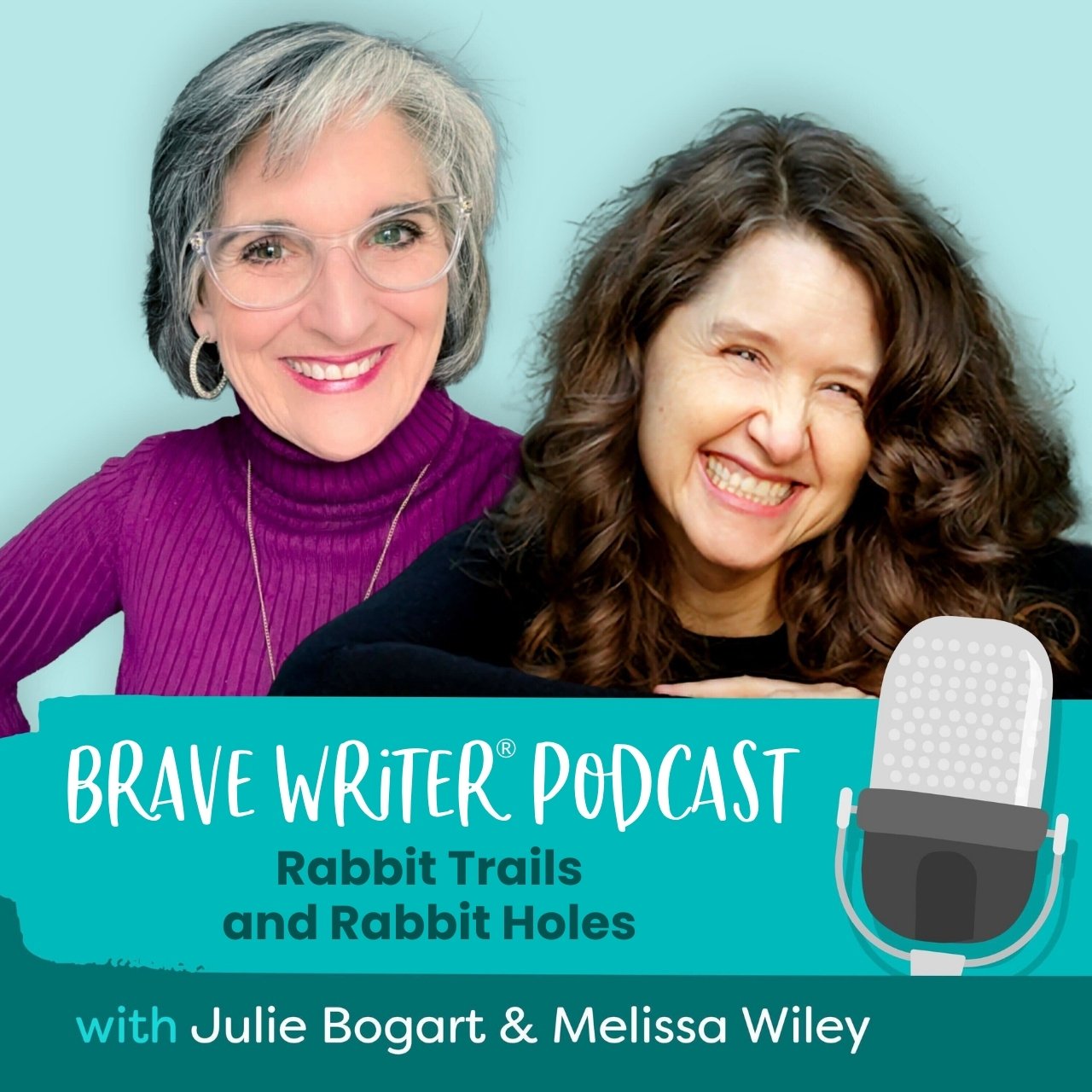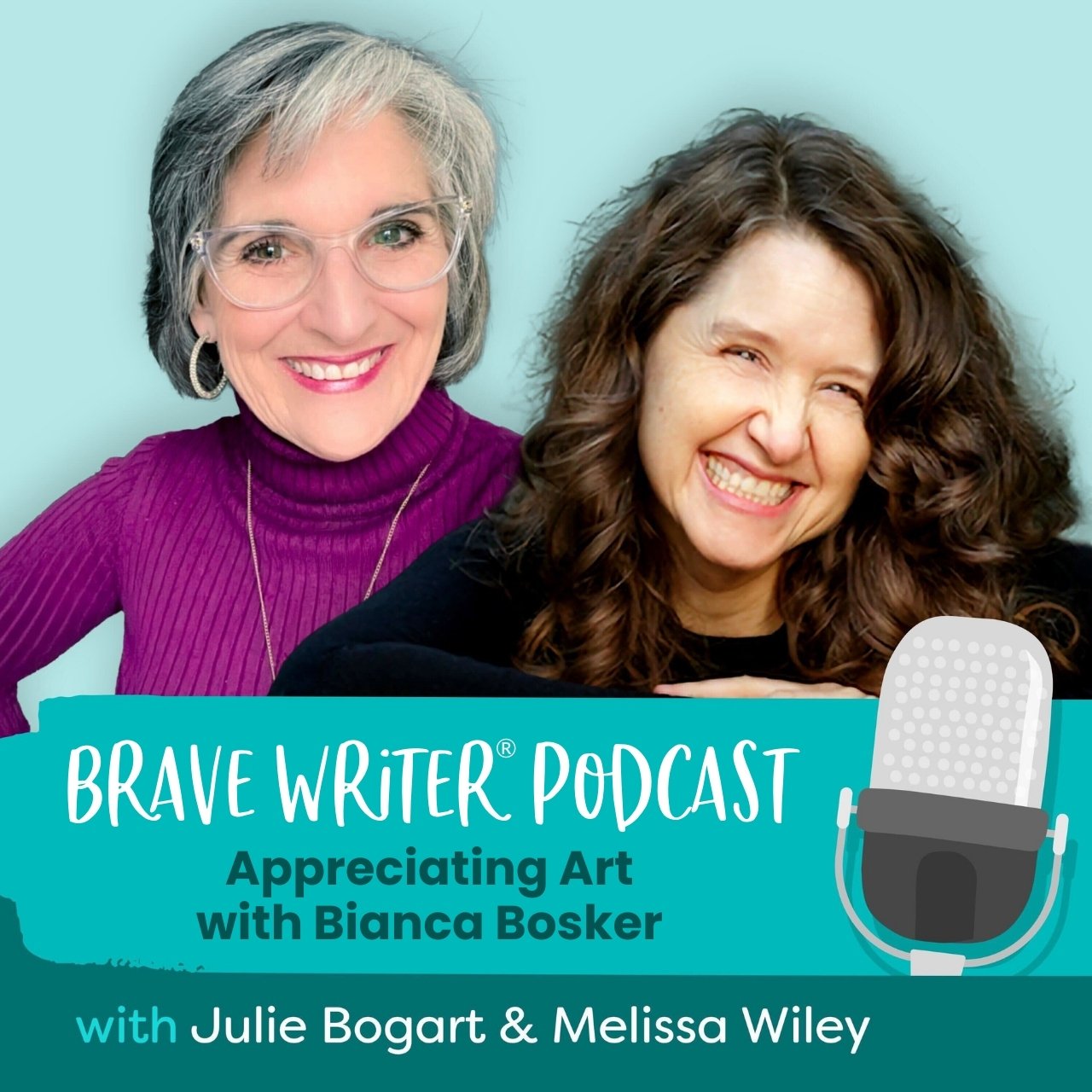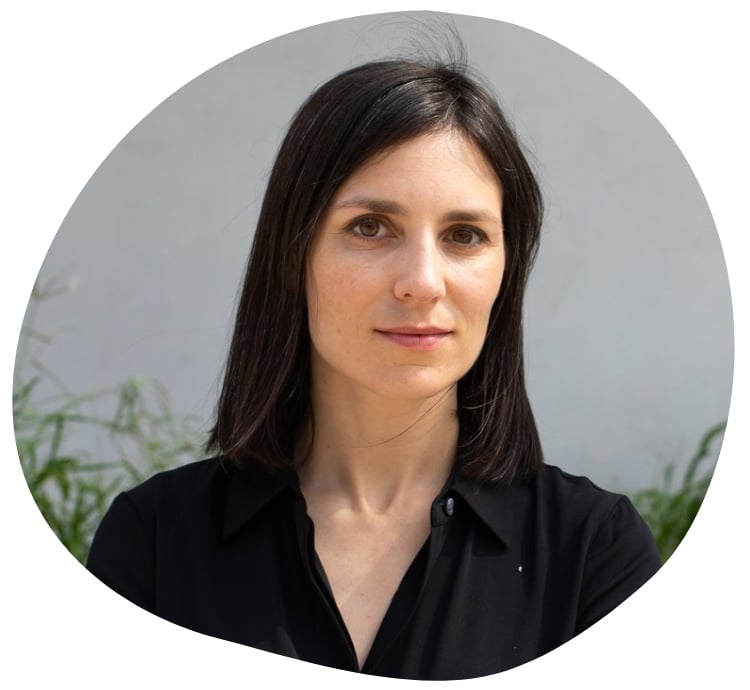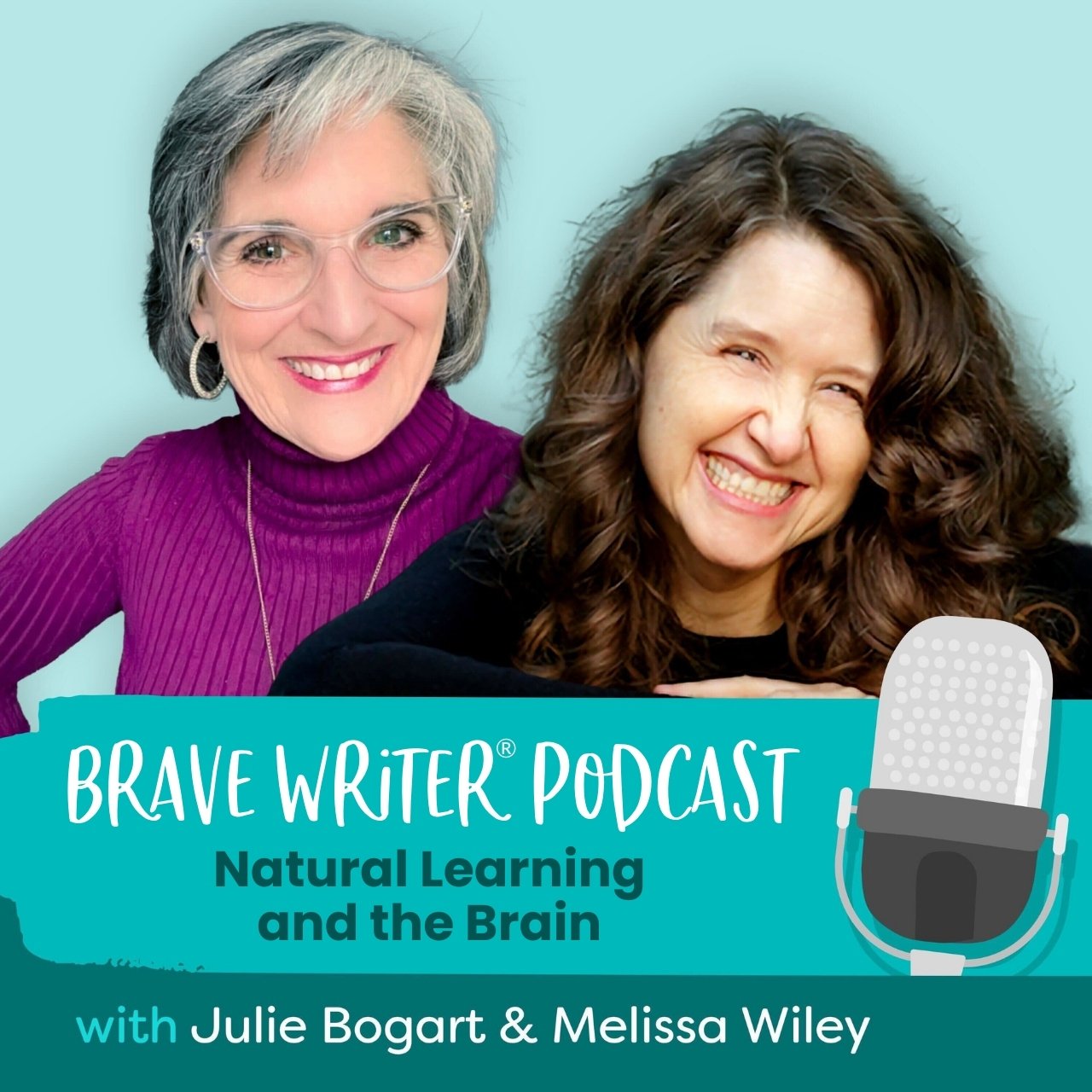
Learning is a natural function of the brain. As teachers, our job is to facilitate that natural function. In today’s Brave Writer podcast episode, we dive into the research around how brains perform learning and the ideal conditions for optimal learning.
We dig into Renata and Geoffrey Caine’s research on the topic, focusing on three key areas:
- orchestrated immersion,
- relaxed alertness,
- and active processing.
We explain how each one works and how to leverage them as homeschooling parents.
This episode is packed with information and ‘lipstick drops’ (you’ll understand after you listen). It will give you tools to create more ‘aha moments’ for you and your learners.
Show Notes
Orchestrated Immersion
Orchestrated Immersion is sometimes known best as the popular ‘strewing’ method. It is when you strategically invite children to approach learning through their own curiosity. For example, Julie leaves bird books and binoculars out when her grandchildren come to visit. She also has her granddaughter help her restock the bird feeders. These items pique her granddaughter’s curiosity and she naturally starts asking questions about birds and the environment. Learning is done best when it organically comes about from real-world contexts.
Relaxed Alertness
Relaxed alertness is the practice of maintaining a highly challenging environment with no pressure. The Caines describe it as ‘a state of mind that combines confidence, competence, and intrinsic motivation in the learner with a low degree of threat.’ It’s an ideal state for learning. In Brave Writer, we stimulate this state by providing motor- and sensory-rich exercises like Keen Observation of an Item.
Active Processing
Kids (and adults) learn best when they consolidate and internalize information by actively processing it. Kids often get overwhelmed by abstract learning and shut down. The more you can literally put learning in their own hands, the better. For example, baking can be a great exercise in fractions– if something goes wrong, you can taste it!
The more you can incorporate this research on how the brain works in your homeschooling, the more ‘aha moments’ you and your kids will enjoy.
Resources
- Start a free trial of CTCmath.com to try the math program that’s sure to grab and keep your child’s attention
- Find the book ‘Making Connections’ in the Brave Writer Book Shop
- Check out the Brave Writer Practice Pages
- Learn more about the Brave Writer Literature & Mechanics programs
- Read all Brave Writer class descriptions
- Sign up for our Text Message Pod Ring to get podcast updates and more!
- Send us podcast topic ideas by texting us: +1 (833) 947-3684
Connect with Julie
- Instagram: @juliebravewriter
- Threads: @juliebravewriter
- Facebook: facebook.com/bravewriter
Connect with Melissa
- Website: melissawiley.com
- Substack: melissawiley.substack.com
- Instagram: @melissawileybooks
Produced by NOVA


